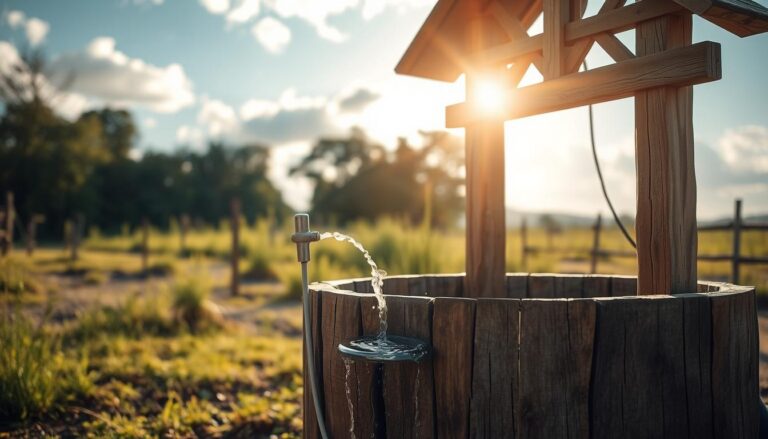Picking a Well Water Filtration System
How Do You Choose the Best Well Water Filtration System?
Choosing the best well water filtration system depends on several factors, such as the type of contaminants present in the water, the size of the system needed, and the budget you have available.
Here are some steps you can take to choose the best well water filtration system:
- Test Your Water: The first step is to have your well water tested to determine the type and number of contaminants present in it. You can hire a professional to do this, or you can purchase a water testing kit and do it yourself. This will help you identify the type of filtration system you need.
- Determine the Type of Filtration System: Based on the results of your water test, you will need to choose the type of filtration system that is best suited for your needs. The most common types of filtration systems include sediment filters, activated carbon filters, reverse osmosis systems, and UV systems. Each type of system targets specific types of contaminants.
- Consider the Size of the System: The size of the filtration system you need will depend on the size of your household and the amount of water you use on a daily basis. A larger family will require a larger system to accommodate their water usage.
- Check for Certification: When choosing a filtration system, it is important to ensure that it is certified by an independent third party, such as NSF International. This certification ensures that the system has been tested and meets specific standards for water quality.
- Consider Maintenance and Replacement Costs: When choosing a filtration system, you should consider the cost of maintenance and replacement of filters or parts. Some systems require more maintenance than others, and replacement filters can be expensive. Be sure to factor these costs into your decision.
- Get Professional Advice: If you are unsure about which filtration system to choose, you can consult with a professional plumber or water treatment specialist. They can help you determine the best system for your needs and provide advice on installation and maintenance.
What Problems Are Commonly Found in Well Water?
Well water can contain a variety of contaminants, depending on factors such as location, geology, and land use. Some of the most common problems found in well water include:
- Hardness: Well water can contain high levels of minerals such as calcium and magnesium, which cause water hardness. This can lead to problems such as scale buildup in pipes and appliances, and soap scum on dishes and laundry.
- Bacteria and Viruses: Well water can become contaminated with bacteria and viruses, which can cause illness. Common pathogens found in well water include E. coli, coliform bacteria, and viruses such as norovirus and rotavirus.
- Nitrates: Nitrates are a common contaminant in well water, particularly in rural areas with agricultural activity. High levels of nitrates can cause health problems, particularly in infants and pregnant women.
- Arsenic: Arsenic is a naturally occurring element found in some well water. High levels of arsenic in drinking water can cause a range of health problems, including skin damage, circulatory problems, and an increased risk of certain cancers.
- Iron and Manganese: Well water can contain high levels of iron and manganese, which can cause staining of fixtures and clothing, as well as unpleasant tastes and odors.
- Radon: Radon is a naturally occurring gas that can dissolve into well water. High levels of radon in drinking water can increase the risk of lung cancer.
- Pesticides and Herbicides: Agricultural activity and other land uses can lead to the presence of pesticides and herbicides in well water. These chemicals can cause a range of health problems, including cancer and reproductive disorders.
It is important to regularly test well water for contaminants and take appropriate measures to treat any problems that are identified.
Well Water Testing Options
There are several options for testing well water. Here are some of the most common:
- Local Health Department: Many local health departments offer well water testing services. Contact your local health department to inquire about testing options and fees.
- Private Laboratories: Private laboratories also offer well water testing services. These laboratories may offer a wider range of testing options than local health departments. Some laboratories offer home testing kits that you can use to collect water samples yourself and send back to the lab for analysis.
- Home Testing Kits: Home testing kits are available for purchase online or at hardware stores. These kits include instructions for collecting a water sample and may include test strips or other tools for analyzing the water. Home testing kits are generally less accurate than laboratory testing, but they can provide a basic indication of water quality.
- Water Treatment Companies: Water treatment companies often offer well water testing as part of their services. If you are considering installing a water treatment system, many companies will offer free water testing as part of the installation process.
When choosing a testing option, be sure to consider the type of contaminants you are concerned about and the accuracy of the testing method.
It is also important to test your well water regularly, as the quality of the water can change over time due to factors such as weather, land use, and geological changes.
Conclusion
To ensure safe and clean well water, it is important to follow certain steps. First, test the water to identify any contaminants present.
This can be done by hiring a professional or using a water testing kit.
Based on the results, choose the appropriate filtration system, such as sediment filters, activated carbon filters, reverse osmosis systems, or UV systems.
Consider the size of the system, certification, and maintenance and replacement costs. If unsure, consult with a professional plumber or water treatment specialist.
Common problems found in well water include hardness, bacteria and viruses, nitrates, arsenic, iron and manganese, radon, and pesticides and herbicides.
Testing options include local health departments, private laboratories, home testing kits, and water treatment companies.
It is important to test well water regularly as the quality can change over time.







